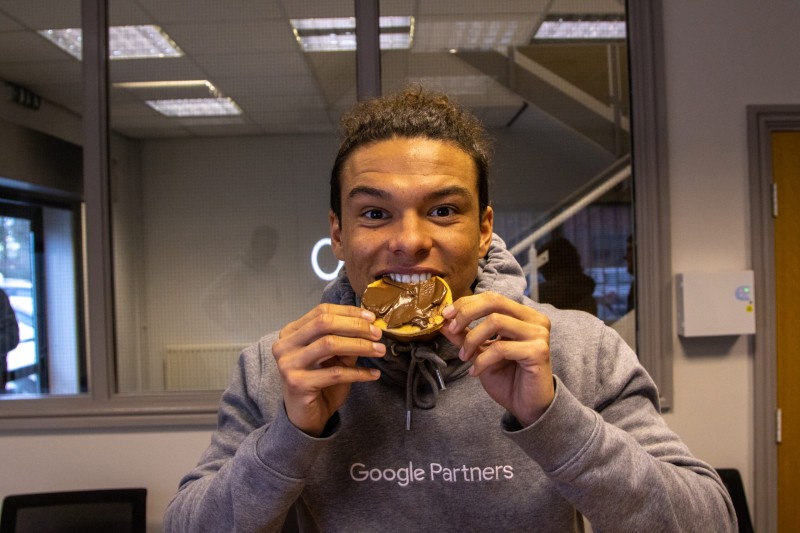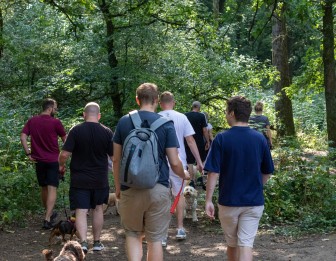Nobody likes slow service.
Whether we’re trying to buy something, or find information, we expect quick service, and aren’t usually prepared to wait around if things aren’t happening quickly.
This is particularly true online.
There are more options than we know what to do with and if one website leaves us waiting around while it tries to load, then we know there are a million others we can go to instead.
Webpage load speed is a big deal for your website.
Not only is it a major factor in conversation rates, but it can also impact your chances of ranking in search and getting found by people in the first place.
Page load speed and conversion rates
Nearly half of customers (47%) expect a webpage to load in under two seconds, according to skilled.co.
Research by AI software company mPulse Mobile also showed how just a few seconds extra for a page to load can impact conversion rates for your website.
Their research found that:
- A load speed of 2.4s had a conversion rate of 1.9%
- This fell to 1.5% at 3.3s
- It falls again to below 1% conversion rate for 4.2s load speed
- And at more than 5.7s, conversion rates were just 0.6%
So just a 3.3s difference in load speed can cause a conversion rate reduction of 1.3%.
Also, research by Google found that more than half (53%) of users will abandon a site that takes more than 3s to load.
It also found that 46% of users say slow websites are their most hated thing about shopping online.
That’s pounds being lost for your business.
Page load speed and SEO
The job of Google – or any search engine – is to present users with the most relevant information related to their search, as quickly as possible.
Which is why page load speed is taken into account of search algorithms when deciding which pages should rank higher.
All other things being equal, the page which loads the quickest will get ranked higher.
It’s been 10 years since Google first announced that page load speed would become a factor in search performance.
And since then, site performance has only increased in importance when it comes to SEO and search rankings.
Google’s recent announcement that “page experience signals” would become a bigger ranking factor in 2021 further emphasised that page load speed would be viewed as a vital component of search performance.
How to improve your website’s page load speed
So, given how important page load speed is to your website’s SEO and conversion performance, how can you improve it?
Compress files
Compressing the file size of your CSS, HTML and JavaScript will instantly make your website quicker.
Trying to load large multimedia files is one of the big things that will slow down your website, so reducing the size of those files means they won’t take as long to load, and your website will run quicker.
Minify HTML, JavaScript and CSS
You can use a minifier tool to do this.
Minifying your HTML, JavaScript and CSS simply removes spacing, indentation, newlines and comments.
These things aren’t needed to use CSS properly, but they do make it harder to read – which slows your website down.
Use browser cache
Browsers will naturally cache information about your website like images and JavaScript files so that it doesn’t have to load the entire page all over again if a website visitor comes back to your site.
Sometimes you might have an expiration date set on when files will no longer be cached but you can reset this date to make it a longer period.
It just means browsers will hold more information about your site for longer.
Reduce your image and video file sizes
Images and videos tend to be larger sized files.
And they’re also becoming more popular on websites as people try to improve the user experience and give more content options than just text.
But having loads of large image and video files on your site can make it harder for browsers to load your pages – because they’re processing larger files.
We’ve already mentioned compressing file sizes on your website.
You should also compress the file sizes of any images or videos you put on your site.
Reduce HTTP requests
A HTTP request is made for elements of your website like images and scripts.
Every request that has to be made takes time, which slows down your page load speed.
You can use the developer tools on Google Chrome to figure out how many HTTP requests are being made.
Once you’ve found all the requests being made, you can look through for any that are unnecessary and remove them.
Reduce ‘time to first byte’
Time to first byte is the time a browser has to wait before getting the first byte of data from a server.
According to Google this should take less than 22ms.
You can use web developer tools and web page testing to figure out your site’s time to first byte.
If it’s over the recommended 200ms there’s a few things that could be causing the slow speed.
It could be network issues or server configurations.
But it can also be any dynamic content.
Dynamic content is becoming a more regular occurrence as businesses try to make their website more personal (dynamic content is a webpage or email component that changes).
Review your hosting
If you’re a new online business, or have a new website, there’s a chance you went for the cheapest option for your hosting.
Lots of new websites do it and it’s normally fine in the early days when you’re not expecting a lot of immediate new traffic.
The cheapest option is shared hosting, which can struggle to manage high traffic spikes.
The problem is that your site is sharing server space with every other website using the shared space, so you’re competing with them.
If you’re starting to see higher levels of traffic and have the investment available, you could switch to a dedicated server, which is one that only your website will use.
Also, free trial hosting is a thing on the market, so don’t be afraid to try before you pay anything.
Figure out how to improve your website speed with a free SEO audit
If you don’t have access to developer tools or don’t know where to start reviewing the page speed of your website then get in touch and get a free SEO audit of your website.
We’ll help you figure out whether your page load speed is optimised, along with every other aspect of your website’s technical SEO.
Get in touch today.
Posted by: hollycharlesworth
July 4, 2023







